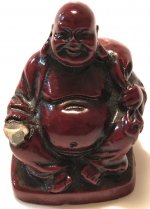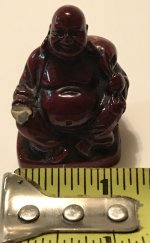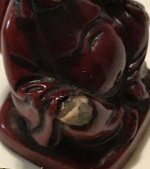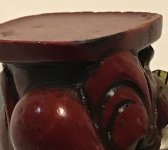jtw1313
Silver Member
- Feb 5, 2013
- 3,724
- 2,092
- Primary Interest:
- All Treasure Hunting
Usually these are all made of resin but this seems to be made of some white stone as shown in the chipped part in photo. If anyone has any ideas please leave a comment
Attachments
-
 811147B7-7AE8-4FB3-8B32-58B7FB512BC9.jpeg246.6 KB · Views: 41
811147B7-7AE8-4FB3-8B32-58B7FB512BC9.jpeg246.6 KB · Views: 41 -
 1F1689AF-CAA3-459F-A254-6E2CC9C78224.jpeg271.6 KB · Views: 36
1F1689AF-CAA3-459F-A254-6E2CC9C78224.jpeg271.6 KB · Views: 36 -
 C9DB46D3-CC3D-4505-B8E7-40EC3EFECF2B.jpeg211.6 KB · Views: 39
C9DB46D3-CC3D-4505-B8E7-40EC3EFECF2B.jpeg211.6 KB · Views: 39 -
 A0C36E6D-60B7-48A7-AD56-9CEDF97C6B3F.jpeg196.8 KB · Views: 38
A0C36E6D-60B7-48A7-AD56-9CEDF97C6B3F.jpeg196.8 KB · Views: 38 -
 BB34ADE0-8997-42A7-AB76-189FD27989C1.jpeg184.3 KB · Views: 36
BB34ADE0-8997-42A7-AB76-189FD27989C1.jpeg184.3 KB · Views: 36



